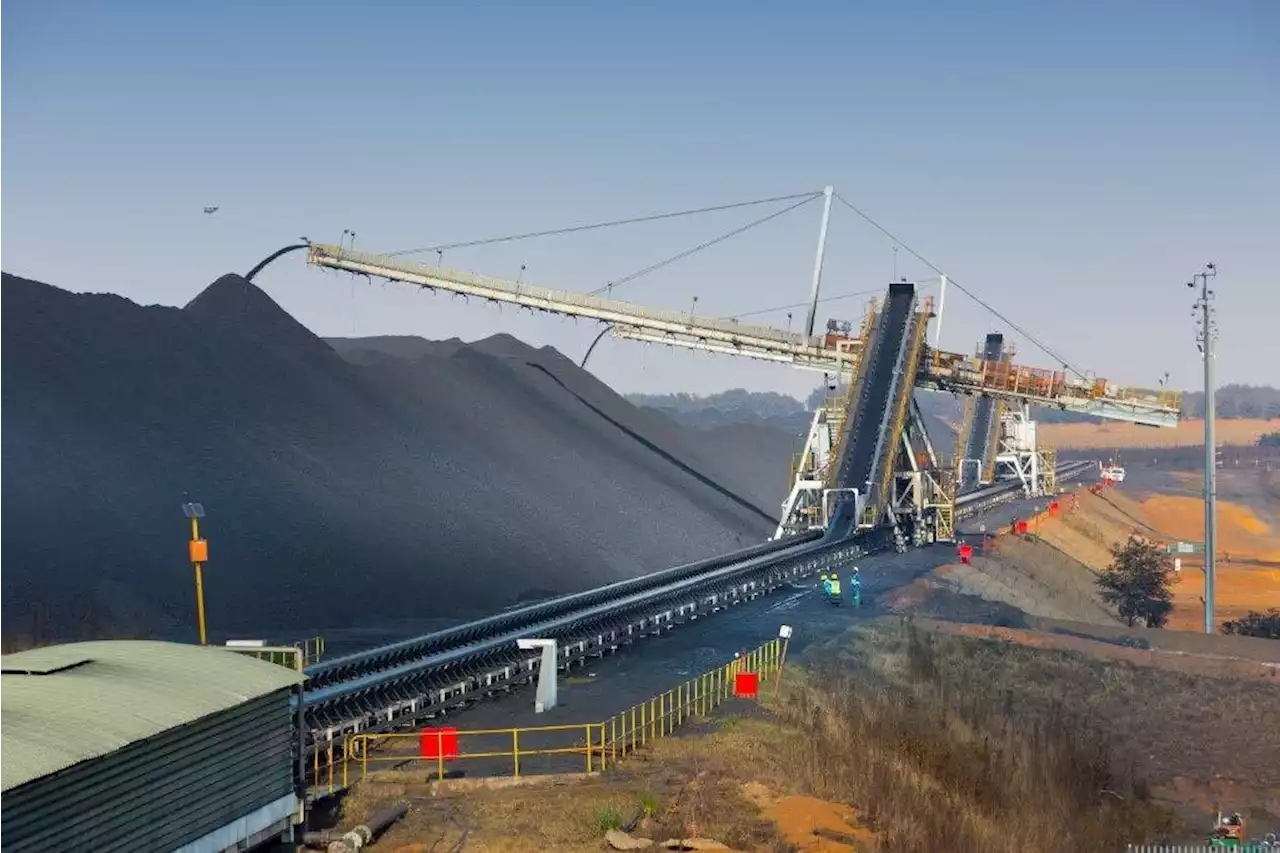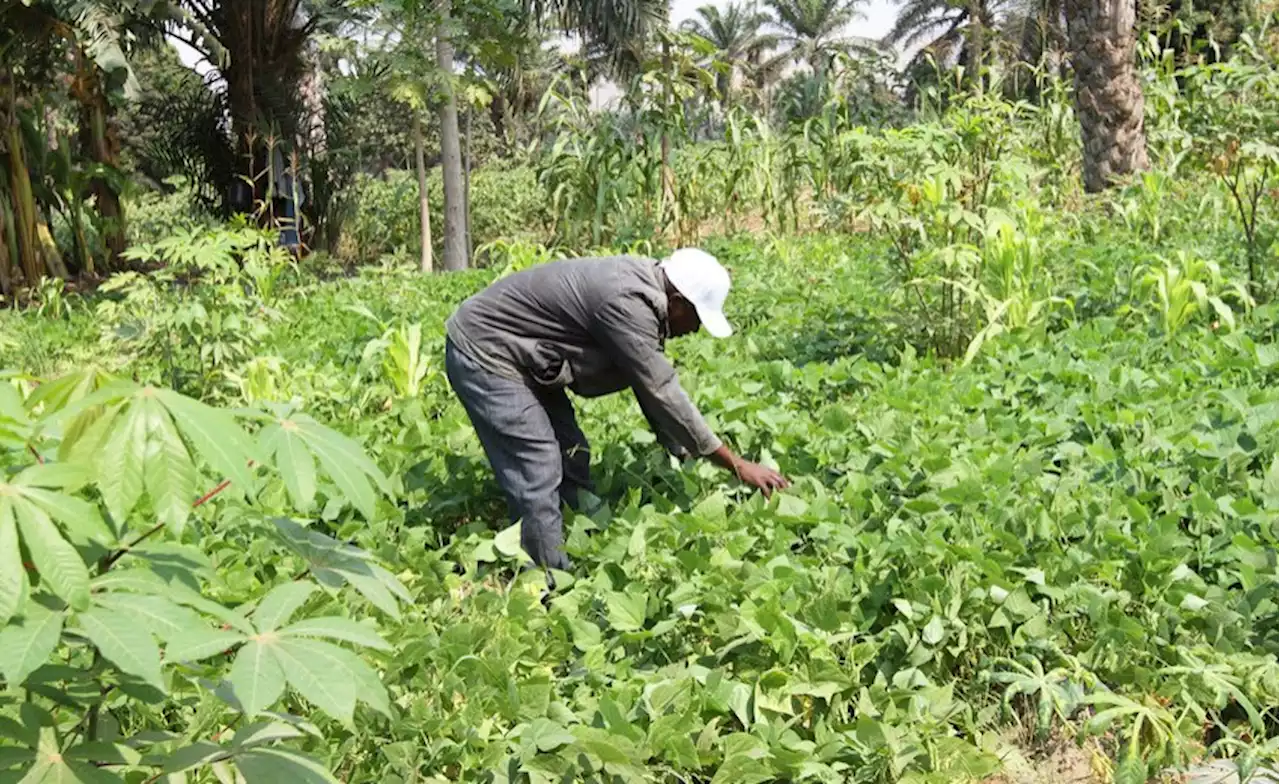Business Day TV speaks to ARM CEO Mike Schmidt
African Rainbow Minerals CEO Mike Schmidt. Picture: FREDDY MAVUNDA/BUSINESS DAY
African Rainbow Minerals has weathered Transnet issues, as well as rising diesel costs. That’s as the diversified miner delivered a 40% jump in headline earnings per share, benefiting from higher coal and manganese prices. Business Day TV caught up with the company’s CEO, Mike Schmidt, for a closer look into its interim performance.
South Africa Latest News, South Africa Headlines
Similar News:You can also read news stories similar to this one that we have collected from other news sources.
African Rainbow Minerals reports higher profit, but lower productionThe diversified miner benefited from higher commodity prices following global economic instability, partly brought on by the war in Ukraine
Read more »
African Rainbow Minerals reports higher profit, but lower productionThe diversified miner benefited from higher commodity prices following global economic instability, partly brought on by the war in Ukraine
Read more »
 African Rainbow Minerals HY profit up 40%AfricanRainbowMinerals (ARM) on Monday reported a 40% jump in its half-year profit, as higher coal and manganese prices offset the impact of cost pressures and rail logistics problems. Moneyweb AfricanRainbowMineralsProfit
African Rainbow Minerals HY profit up 40%AfricanRainbowMinerals (ARM) on Monday reported a 40% jump in its half-year profit, as higher coal and manganese prices offset the impact of cost pressures and rail logistics problems. Moneyweb AfricanRainbowMineralsProfit
Read more »
African Rainbow Minerals earmarks R1bn in capex for Bokoni Platinum MineThe diversified miner benefited from higher commodity prices following global economic instability, partly brought on by the war in Ukraine
Read more »
 GROUNDUP PHOTO ESSAY: Cape Town Pride – Bright rainbow-coloured flags make waves down the city streetsThe parade through the city centre was to ‘celebrate the fact that we are protected by the law here and that we have the right to exist’.
GROUNDUP PHOTO ESSAY: Cape Town Pride – Bright rainbow-coloured flags make waves down the city streetsThe parade through the city centre was to ‘celebrate the fact that we are protected by the law here and that we have the right to exist’.
Read more »
 3 in 4 African Govts Spend More on Arms, Less on FarmsThree-quarters of African governments have already reduced their agricultural budgets while paying almost double that on arms, writes Baher Kamal for Inter Press Service. Africa is home to a quarter of the world's entire agricultural land. Nevertheless, in the 12 months that African leaders vowed to improve food security in the continent, over 20 million more people have been pushed into "severe hunger." The majority of African governments (48 out of 54) reportedly spend an average of 3.8% of their budgets on agriculture -some spending as little as 1%. Nearly three quarters of these governments have reduced their agricultural spending since 2019, failing to honour their Malabo commitments to invest at least 10% of their budget on agriculture. In 2014 African leaders signed the Malabo Declaration, which stipulated that African governments must spend at least 10% of their budget on Agriculture and supporting farmers. In contrast, "African governments spent nearly double that budget (6.4%) on arms in 2022. Ongoing conflict, especially in Sahel and Central Africa, has continued to destroy farmland, displace people and fuel hunger." Oxfam reports that climate change is fuelling hunger for millions of people around the world. "Extreme weather events have increased five-fold over the past 50 years, destroying homes, decimating livelihoods, fuelling conflict and displacement, and deepening inequality. Climate change has resulted in more frequent and intense droughts, floods, and heat waves.
3 in 4 African Govts Spend More on Arms, Less on FarmsThree-quarters of African governments have already reduced their agricultural budgets while paying almost double that on arms, writes Baher Kamal for Inter Press Service. Africa is home to a quarter of the world's entire agricultural land. Nevertheless, in the 12 months that African leaders vowed to improve food security in the continent, over 20 million more people have been pushed into "severe hunger." The majority of African governments (48 out of 54) reportedly spend an average of 3.8% of their budgets on agriculture -some spending as little as 1%. Nearly three quarters of these governments have reduced their agricultural spending since 2019, failing to honour their Malabo commitments to invest at least 10% of their budget on agriculture. In 2014 African leaders signed the Malabo Declaration, which stipulated that African governments must spend at least 10% of their budget on Agriculture and supporting farmers. In contrast, "African governments spent nearly double that budget (6.4%) on arms in 2022. Ongoing conflict, especially in Sahel and Central Africa, has continued to destroy farmland, displace people and fuel hunger." Oxfam reports that climate change is fuelling hunger for millions of people around the world. "Extreme weather events have increased five-fold over the past 50 years, destroying homes, decimating livelihoods, fuelling conflict and displacement, and deepening inequality. Climate change has resulted in more frequent and intense droughts, floods, and heat waves.
Read more »